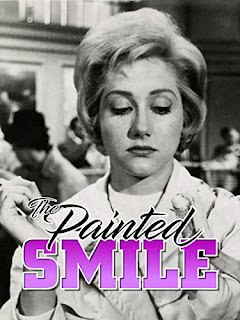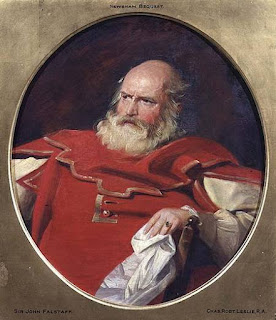WORD NO THING: REIFICATION
What is honour? A word. What is in that word ‘honour’? What is that ‘honour’? Air. (Falstaff, Henry IV Part One, William Shakespeare)
There are words that are never defined. No evidence is ever produced for the existence of the Things they refer to, yet these are talked about confidently as if they were real. Philosopher John Locke called them “insignificant terms”, and to the French they are “empty signifiers” (signifiants vides). (Some of these Things may have a doubtful semi-existence. You can reify something easily by calling it “the something”. But you haven’t actually summoned it into existence. But what do you call it when you don’t merely reify the abstract concept – nature, progress, but ascribe intentionality to it? Personalisation?)
We didn’t do it, it was:
civilisation (“Civilisation flourished in the Indus Valley.”)
complexes, compulsions
demons, destiny, drives
evolution, fate
historical inevitability, history (“the wrong side of history”)
impulse, inhibition, inspiration, instinct
karma, Nature, neuroses
progress, providence
repression, sublimation
temper, temptation (from the Devil)
the dark side, the passions, the subconscious
the Zeitgeist, urges
MORE EMPTY SIGNIFIERS
anger management: Your problem is behaviour you need to stop, not an emotion you need to control. In fact, it’s our problem and you need to stop it now.
authority
benign neglect: No neglect is benign. And it usually means “middle-class neglect”.
brainstorm
cancel culture
caste: Yes, caste systems exist, but people are not really inferior or superior.
closure
counterculture
dyslexia: Many teachers define an inability to read as “NBT” – “never been taught”.
empowerment, liberation: Popular in the 80s, but they were seen as internal feelings. People have to give you power and freedom.
family values: Never defined, but probably means “no single mothers being a burden on the taxpayer”.
femininity
frigidity
functioning alcoholic: You only think you’re functioning. You only think nobody notices.
gender
genius
grounded
honour
human nature
identity
inalienable rights: Those who give you rights can take them away.
low pain threshold
modernity: Assumes we progress just because time passes.
My Big Break
nation: Convenient fiction that allows “us” to rule without too much trouble.
neurosis
non-binary
nymphomania
patriarchy
permissive society: It always seemed to be happening somewhere else. It also assumes that society ought to be repressive. It further assumes that people shouldn’t – or even can’t – do what they like without permission from somebody.
primitivism: a state to which human beings will regress given half a chance (Given the ease with which humans default to racism, sexism and victim-blaming, perhaps this is not such an empty concept.)
progress: an impersonal force, an inevitable improvement (But it’s also talked of as if it had plans for us.)
rights: See the UN Declaration on Human Rights.
romance: You can always dismiss a phenomenon by calling it “unromantic”, such as... driverless cars?
sacred
sanctity: They said equal partnerships would destroy the sanctity of marriage. How’s it doing?
self-fulfilment
self-esteem
sense of community, sense of Britishness, pride: Things the Powers That Be want us to have because they will stop us rioting and emigrating to Australia, or something. Or perhaps they’ll just make us vote Conservative.
standard English, French etc: Invented in the 19th century as collections of states became “nations”. (Governments suppressed minority languages.)
the Age of Aquarius
the last taboo: As if soon there would be none.
the meaning of life: Do you mean “purpose”?
the multiculturalism experiment: Seems to mean “translating leaflets into Turkish”. The alternative is NOT translating the leaflets, so monoglot Turks will be forced to learn English. But meanwhile they can’t understand the leaflets. And you’ve just scrapped the English classes.
the new celibacy: Much-touted in the 80s by a couple who’d been influenced by a guru and wanted to sell their book.
the new man: In the late 60s, this fabulous creature was going to take on half the housework and childcare.
the new millennium: It turned out to be just like the last one, and we stopped talking about it.
the next chapter (in my life): As if would just come along. You usually have to write chapters.
the nuclear umbrella
the paperless office
the subconscious: When I was young, we were told we should give our subconscious the right programming, and it would then cause us to do and say the right thing, while sending messages to other people’s subconscious minds, which would communicate with our subconscious… Meanwhile, what DO you say after you say hello?
the will, willpower
trickle-down economics: See “Bilbao Effect”.
validation
Victorian values: Never defined, but probably “hard work and thrift” were meant, not “workhouses and disenfranchisement”.
Zeitgeist: In the early 20th century, quite sensible people thought that, for instance, nations had a “geist” or spirit. The Zeitgeist is the spirit of the age. Makes Gustav Jung’s “collective unconscious” sound a tad less off-beam.
And what do people mean when they say “It doesn’t define me”?
More about grammar here, and links to the rest.
From my book Boo & Hooray: Dysphemisms and Euphemisms



